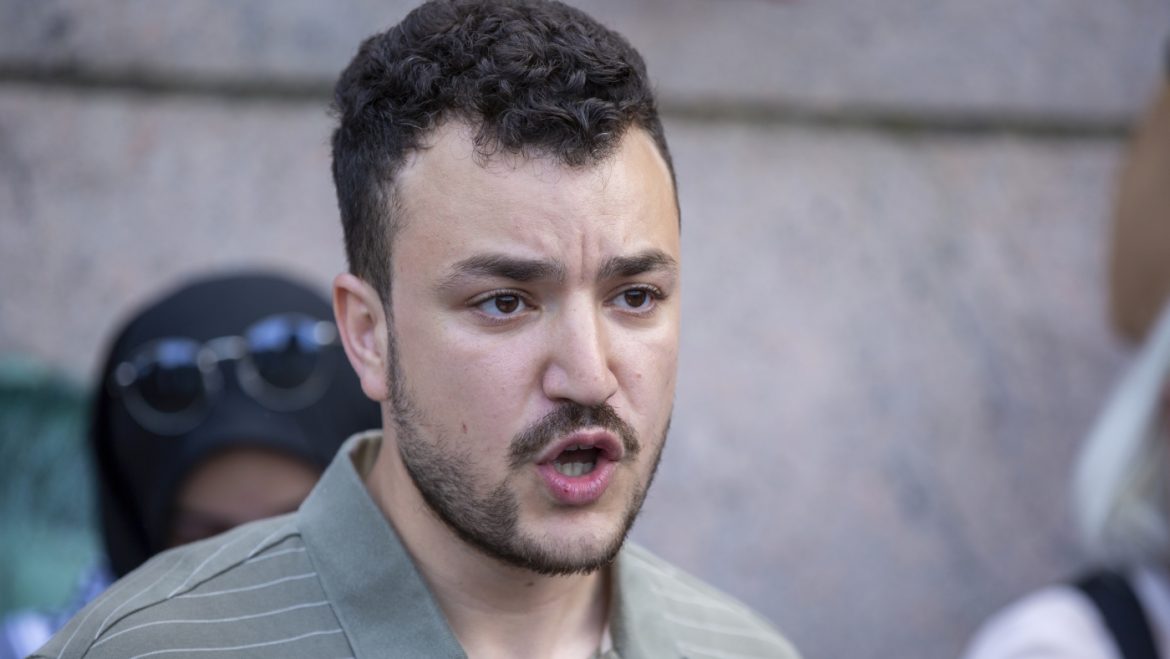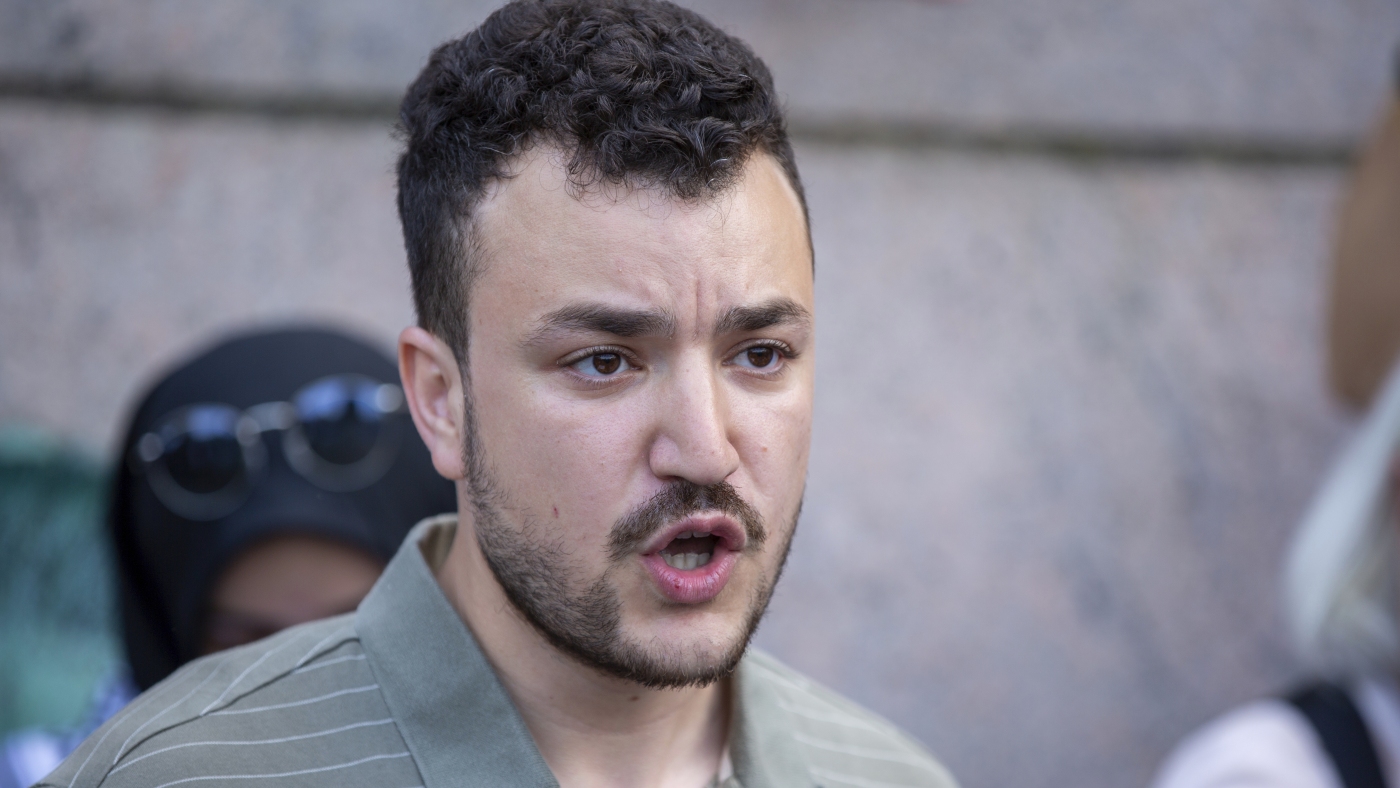The Case of Mahmoud Khalil: A Legal Battleground
The case of Mahmoud Khalil, a former Columbia University graduate student and pro-Palestinian activist, has rapidly become a focal point in debates surrounding immigration enforcement, political activism, and the scope of governmental power. Initially detained by Immigration and Customs Enforcement (ICE) in March, Khalil’s prolonged detention sparked significant controversy and legal challenges. A series of rulings culminated in a federal judge ordering his release, a decision that initially appeared definitive but was subsequently complicated by shifting ICE strategies. This report details the timeline of events, the legal arguments presented, and the broader implications of this case.
Initial Detention and the Government’s Position
Mahmoud Khalil’s arrest by ICE agents in New York City in March triggered immediate concern among his supporters and civil rights advocates. The government’s justification for his detention centered on immigration violations, but critics alleged a clear pattern of targeting Khalil due to his outspoken activism in support of Palestinian rights. The timing of the arrest, following his involvement in pro-Palestinian protests at Columbia University, fueled these suspicions.
The Department of Justice (DOJ) initially argued that Khalil’s detention was lawful and necessary, defending its position against the judge’s eventual findings. While specific details of the initial immigration violations were not widely publicized, the government maintained that Khalil was subject to deportation proceedings. This stance, however, was increasingly challenged as the case progressed, with rights groups arguing that the detention was politically motivated and violated Khalil’s First Amendment rights.
The Judge’s Order for Release: A Turning Point
The core of the legal battle revolved around the legality of Khalil’s continued detention. A federal judge in New Jersey ultimately ruled in favor of Khalil, ordering his release from ICE custody. This decision represented a significant setback for the Trump administration’s efforts to detain and deport him. The judge’s reasoning, while not fully detailed in available reports, indicated concerns about the fairness of the detention and the government’s justification for holding Khalil.
The order for release was widely hailed as a victory for civil liberties and a rebuke of what many saw as a politically motivated attempt to silence dissent. News outlets across the country, including ABC News, PBS, USA TODAY, and The Hill, reported on the ruling, emphasizing its implications for activists and the broader debate over immigration enforcement. The judge’s decision stipulated that Khalil could be released on bail from a Louisiana immigration detention facility, where he had been held for over three months.
ICE’s Shifting Strategy and Continued Detention
Despite the judge’s clear order for release, the situation remained fluid. ICE responded by altering its strategy, seeking to justify Khalil’s continued detention on different grounds. This maneuver effectively stalled the release, prompting further legal challenges and accusations of bad faith on the part of the government.
The Hill reported that the judge determined Khalil would *remain* in ICE detention after the agency changed its strategy. This shift suggested that ICE was attempting to circumvent the judge’s ruling by focusing on alternative justifications for detention, rather than addressing the initial concerns that led to the order for release. This tactic raised questions about the government’s commitment to upholding the rule of law and respecting judicial decisions.
The Core Legal Arguments and Concerns
The case of Mahmoud Khalil highlighted several critical legal and ethical concerns. Central to the debate was the question of whether Khalil’s activism had played a role in his detention. Critics argued that ICE had specifically targeted him because of his pro-Palestinian views, violating his First Amendment rights to freedom of speech and assembly.
Another key argument centered on the due process rights of immigrants facing deportation. Khalil’s supporters contended that he had not been afforded a fair hearing and that the government had failed to provide sufficient evidence to justify his continued detention. The prolonged nature of his detention, without a clear and compelling justification, further fueled these concerns.
Furthermore, the case raised broader questions about the scope of ICE’s authority and the potential for political abuse. The agency’s willingness to shift its legal strategy in an attempt to circumvent a judge’s order raised concerns about its accountability and its adherence to legal principles.
The Impact of the “Trump Administration” Context
Multiple reports specifically mention the “Trump administration’s” efforts to detain and deport Khalil. This context is crucial. The Trump administration pursued a particularly aggressive immigration enforcement policy, often prioritizing the deportation of individuals perceived as critical of the government or associated with controversial causes.
The framing of the case within this broader political landscape underscored the concerns about politically motivated targeting. Khalil’s supporters argued that his detention was part of a larger pattern of intimidation and repression aimed at silencing dissent and suppressing pro-Palestinian activism. The repeated references to the administration’s involvement highlighted the perceived political dimension of the case.
A Victory, But Not a Complete Resolution
While the initial judge’s order for release was a significant victory for Khalil and his advocates, the subsequent actions by ICE demonstrated the complexities of navigating the immigration system. The agency’s shifting strategy and attempts to circumvent the court’s ruling underscored the challenges faced by individuals fighting deportation, particularly those who are perceived as politically sensitive.
The case ultimately served as a stark reminder of the potential for abuse within the immigration enforcement system and the importance of safeguarding the rights of immigrants and activists. It also highlighted the crucial role of the judiciary in protecting civil liberties and holding the government accountable.
A Precedent in the Making
The legal battles surrounding Mahmoud Khalil’s detention are likely to have lasting implications. The case has already drawn attention to the potential for politically motivated targeting within the immigration system and the need for greater transparency and accountability in ICE’s enforcement practices.
The judge’s initial order for release, and the subsequent attempts by ICE to circumvent it, could set a precedent for future cases involving activists and individuals facing deportation. It reinforces the importance of robust legal challenges to immigration enforcement actions and the need for courts to carefully scrutinize the government’s justifications for detention. The case of Mahmoud Khalil, therefore, stands as a critical moment in the ongoing debate over immigration, activism, and the balance between national security and civil liberties.


